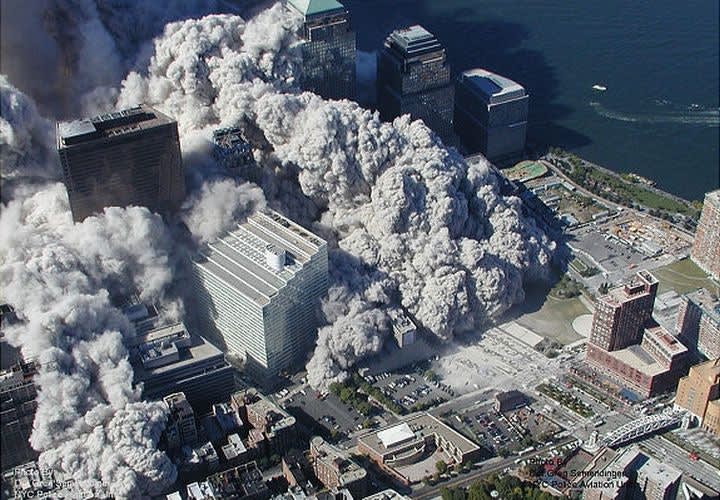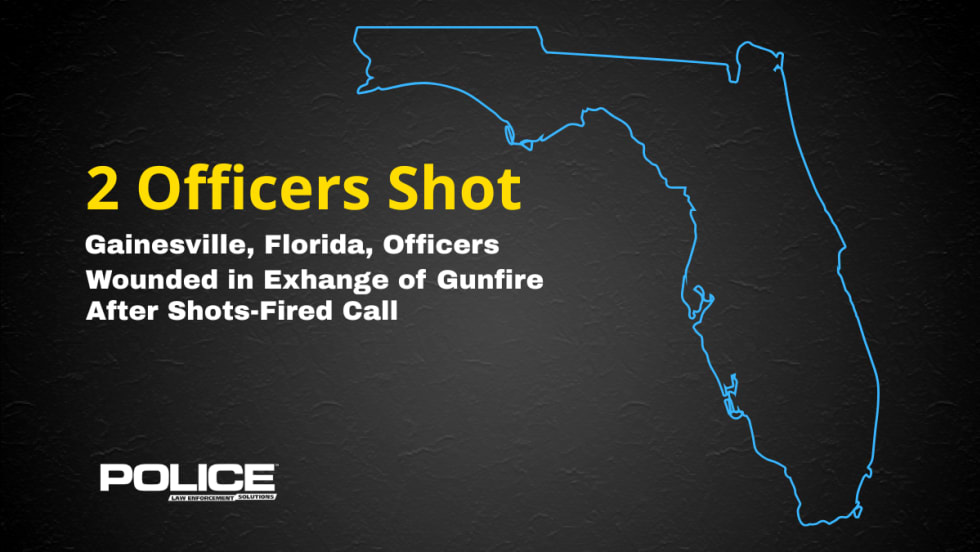Many of the police responders who worked at Ground Zero on Sept. 11, 2001 after the terrorist attacks to serve on America's darkest day paid a steeper price than they would know.
The attacks claimed 72 officers on that day, and countless others developed debilitating respiratory illnesses in the months and years following the attacks. The New York Police Department lost 23 officers on 9/11, and another 29 since that deadly day due to ailments they developed from working at Ground Zero.
Christine Todd Whitman, head of the Environmental Protection Agency on 9/11, said that the "air was safe to breathe," yet it was later learned she wasn't telling the whole truth.
The plume of debris from the collapsed World Trade Center towers consisted of more than 2,500 contaminants that included construction debris, glass, cellulose, asbestos, lead and mercury, according to a 2006 New York Times article. Substances that dispersed into the Lower Manhattan air included crystalline silica, lead, cadmium, and polycyclic aromatic hydrocarbons.
Initially, World Trade Center Medical Monitoring and Treatment centers, known as "centers of excellence," were set up in the New York area to provide medical care or referrals to first responders. Eventually, federal funding ran out. Funding to the Victims Compensation Fund (VCF), which was set up by Congress, also dried up, by December 2003.
To fill this gap, Rep. Carolyn Maloney (D-N.Y.) introduced the James Zadroga 9/11 Health and Compensation Act. She had the support of numerous law enforcement groups, but few of her out-of-state colleagues.
Extending health-care screenings and treatment for the 9/11 first responders initially stalled because federal lawmakers who represented areas outside of New York believed it was a New York issue.
Why should California, Texas, Illinois or other states pay for health-care for New York Police officers, firefighters and Port Authority responders, these congressional leaders argued.
As a result, police unions and associations lobbied these officials with a specific message.
"Those who stepped up for our country would be covered," said Jon Adler, president of the Federal Law Enforcement Officers Association (FLEOA). "If one star is attacked, then we are all attacked. We don't want anyone to minimize this as a New York problem, or a D.C. problem or a Shanksville (Pa.) problem."
Congress passed the bill in late 2010, and President Obama signed it into law on Jan. 2.
The bill, which was named after a NYPD sergeant whose death was the first attributed to Ground Zero toxins, set aside $4.3 billion over five years for ongoing health screenings and care for responders, who came from all but five of the 435 districts in the House of Representatives.
The act provides screenings and care for responders who developed WTC health conditions — mostly aerodigestive disorders such as GERD (gastroesophageal reflux disease), asthma, interstitial lung diseases, or COPD (chronic obstructive pulmonary disease). The bill becomes operational Oct. 1, and provides $2.7 billion of the $4.3 billion to the VCF.
In addition to New York police responders, the act provides care to responders who live outside of the New York area. Those responders can receive care from an eligible medical provider in their area.
Police and fire responders have questioned why the bill doesn't provide treatment to responders suffering from cancer. A study published Sept. 1 in the British medical journal The Lancet reported that firefighters who worked at Ground Zero were 19 percent more likely to develop cancer than those who were not there. Nearly 10,000 firefighters were included in the study.
The leaders of police and fire unions are hopeful that cancer will eventually be covered, says NYPD Sgt. Bob Ganley, the vice president of the Sergeants Benevolent Association.
"We told them the importance of certain diseases that need to be there, such as PTSD and respiratory ailments," Sgt. Ganley said. "We tried to get cancer into the bill. As of right now it's not in. We were satisfied with what was in the bill at passage. Hopefully there will be improvements."












